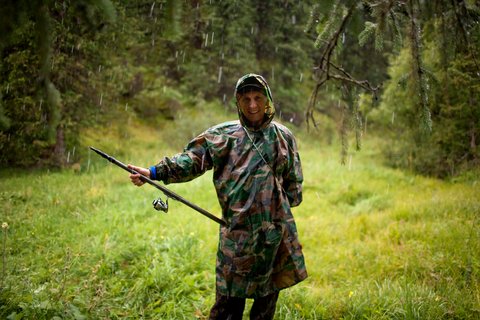Throughout the course of the fishing season, no factor affects anglers more than weather. The weather is always changing and anglers must adapt to those changing conditions in order to catch fish.
Shifts in the weather can improve angling or make it considerably more challenging. If you learn how weather affects fish, you will be able to alter your approach and put more fish in the boat, even under the most challenging conditions.
One of the most dreaded weather changes in the angling world is the cold front. Nothing can shut down fishing faster than a cold front. Yet, a cold front does not have to be an insurmountable obstacle.
When a cold front moves in, the barometric pressure rises. Fish are very sensitive to changes in pressure, and when the cold front arrives, they typically move towards cover and stick there until the barometric pressure drops. Many times, they also move to deeper water. During a cold front, fish do not move far from their holding places and they become lethargic. This definitely makes angling more challenging, but if you adapt to the conditions, you can still catch fish.
The first thing you need to do during a cold front is identify the cover fish have moved to. This could be submerged trees, docks, rock piles, weeds or other structure. Once you find their holding areas, you must use a slow, patient approach.
During a cold front, you need to put your bait right in front of the fish and you need to work it slowly. One of the best tactics is to think vertically. For instance, instead of retrieving your bait horizontally past the fish, try working your bait vertically, or up and down where the fish are holding. This keeps your bait in front of the fish longer and provides more opportunities for the fish to go after your bait.
Another good tactic during a cold front is to downsize your bait. Using smaller baits when fish are lethargic, can often work better than using larger baits.
While the cold front is widely despised by anglers, the days before a cold front arrives can be a bonanza for anglers. This is a time when the barometric pressure is lower, which spurs fish activity. If you know a cold front is on its way, this is the time to get out on the water and make the most of your opportunity.
Likewise, the arrival of a warm front is also an optimal time to get out on the water. The barometric pressure will be dropping and this will trigger feeding activity.
Another good opportunity for angling is during and immediately following a rain. Light rain can increase insect activity, which will encourage fish to feed. Rain also washes food sources into a body of water, which will increase feeding activity.
Learning to use the weather to your advantage and how to approach weather conditions, when they are working against you, will definitely improve your success throughout the year. It is important to take the weather into consideration whenever you are fishing and to think about how it will be affecting fish activity.
Photo credit: Dreamstime








